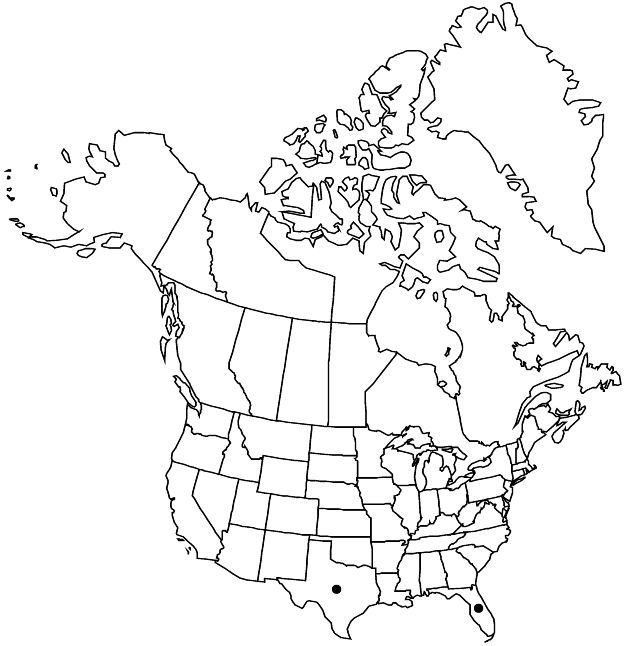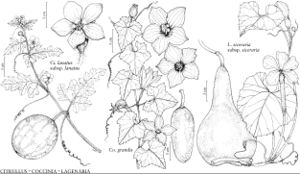Coccinia grandis
Hort. Suburb. Calcutt., 59. 1845.
Vines climbing, widely spreading, sometimes prostrate. Stems glabrous or glabrate, sometimes rooting at nodes. Leaves: petiole 1–5 cm; blade 5–10 × 4–9 cm, base cordate with broad sinus, apex acute, mucronate, adaxial surface with 3–8 glands. Peduncles 1–5 cm. Flowers: sepals recurved, 2–5 mm; petals 15–20 mm, apices acute to obtuse-apiculate. Pepos 2.5–6 cm. Seeds 6–8 mm, aril red to red-orange. 2n = 24.
Phenology: Flowering May–Nov.
Habitat: Trash dumps, thickets, fencerows, cypress swamps
Elevation: 0–30 m
Distribution

Fla., Tex., e Africa, introduced also in Asia (China, India, Indonesia, Malaysia, Pakistan, Thailand, Vietnam), Pacific Islands, Australia.
Discussion
The shoot tips and immature fruits of Coccinia grandis are used in Asian and Indian cooking; long-range dispersal is often the result of introduction by humans. It sometimes has been misidentified as C. cordifolia (Linnaeus) Cogniaux.
Selected References
None.
